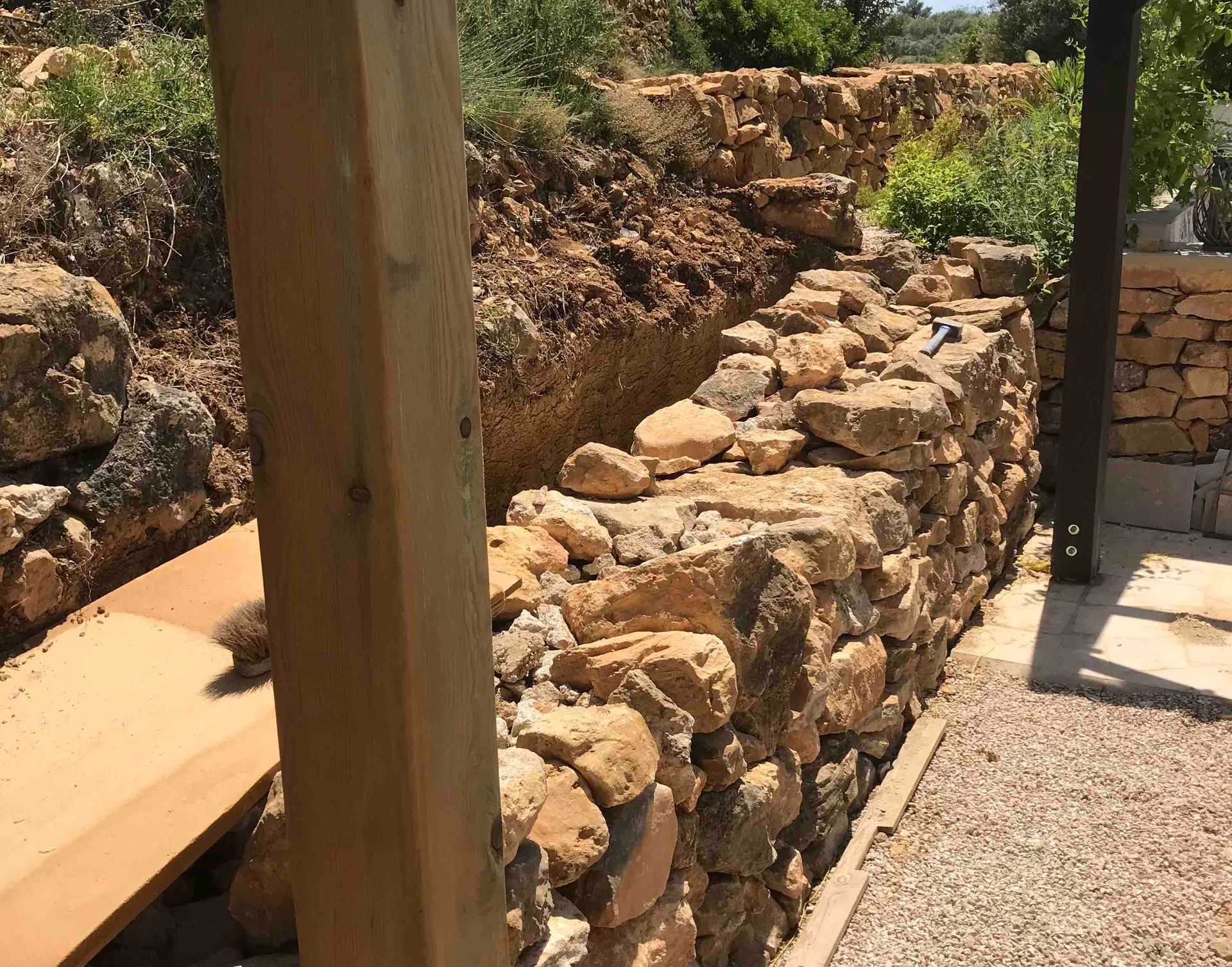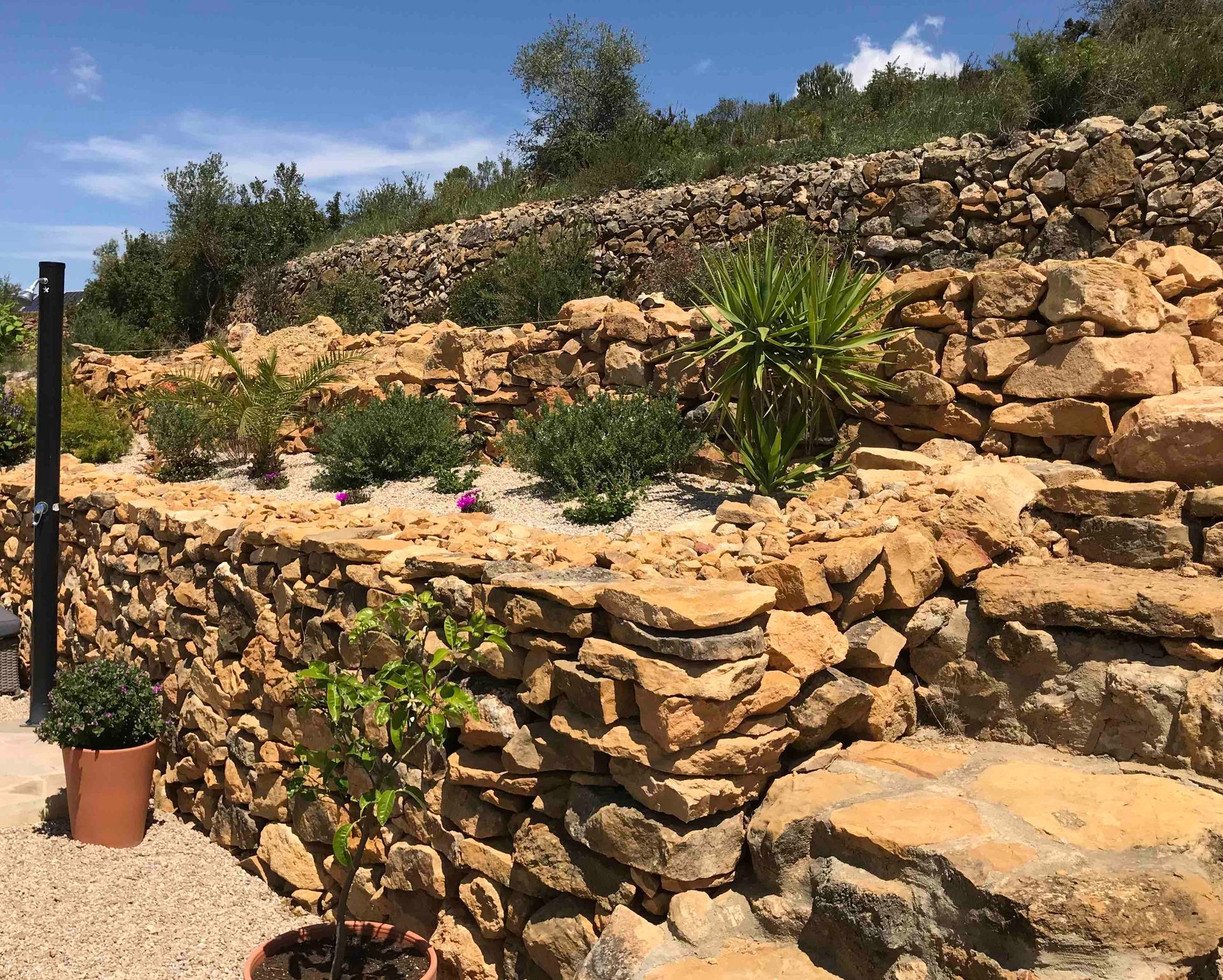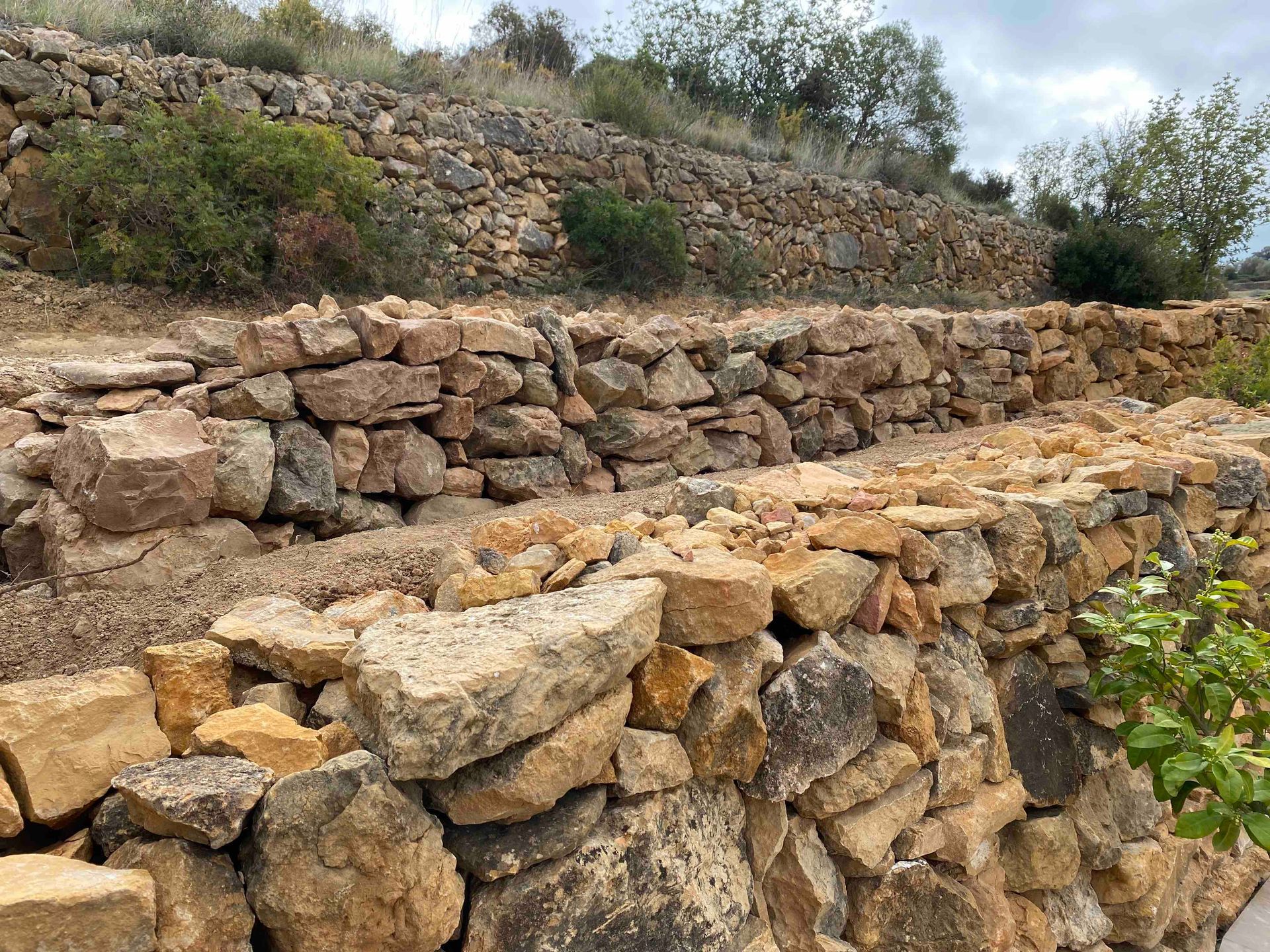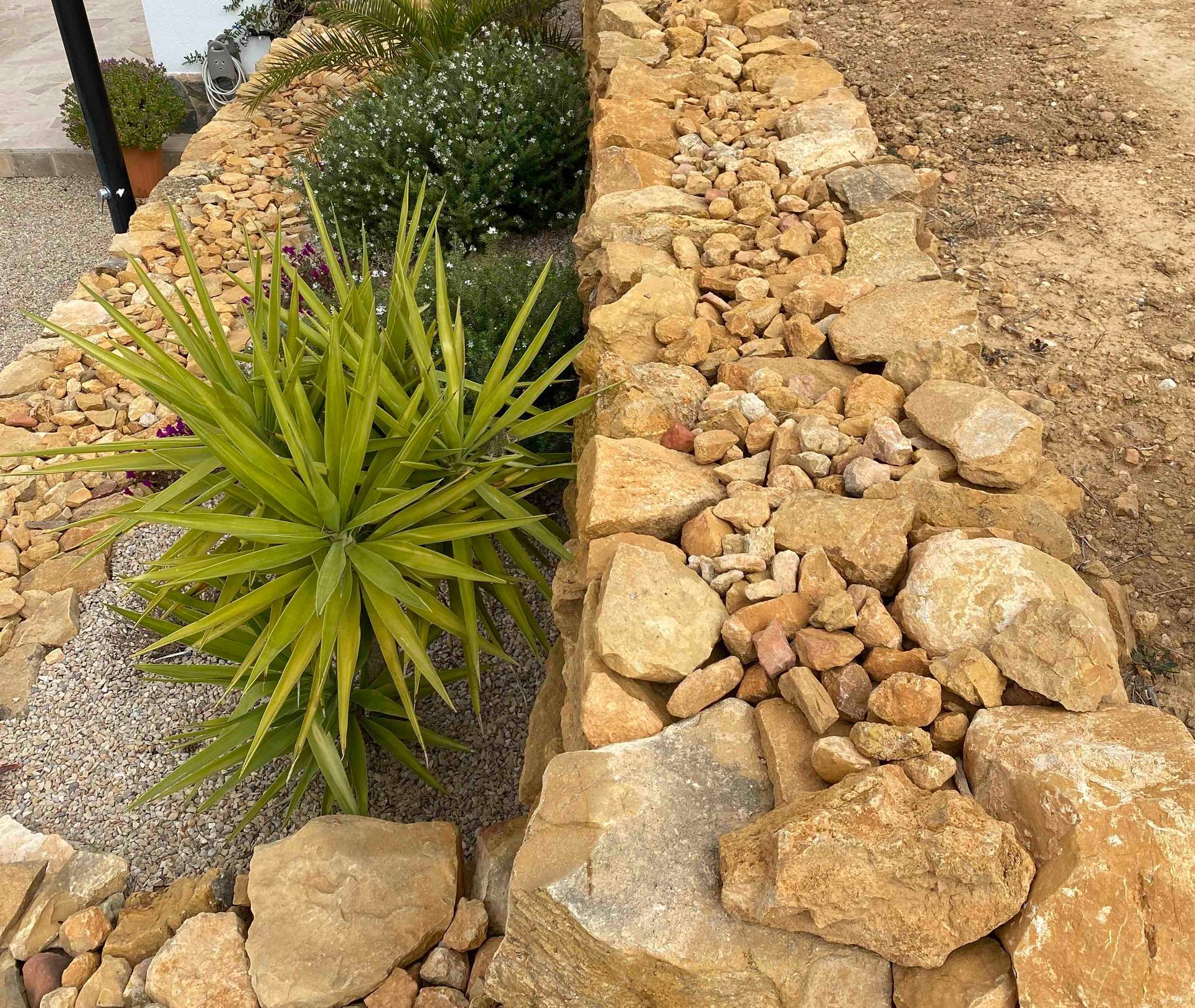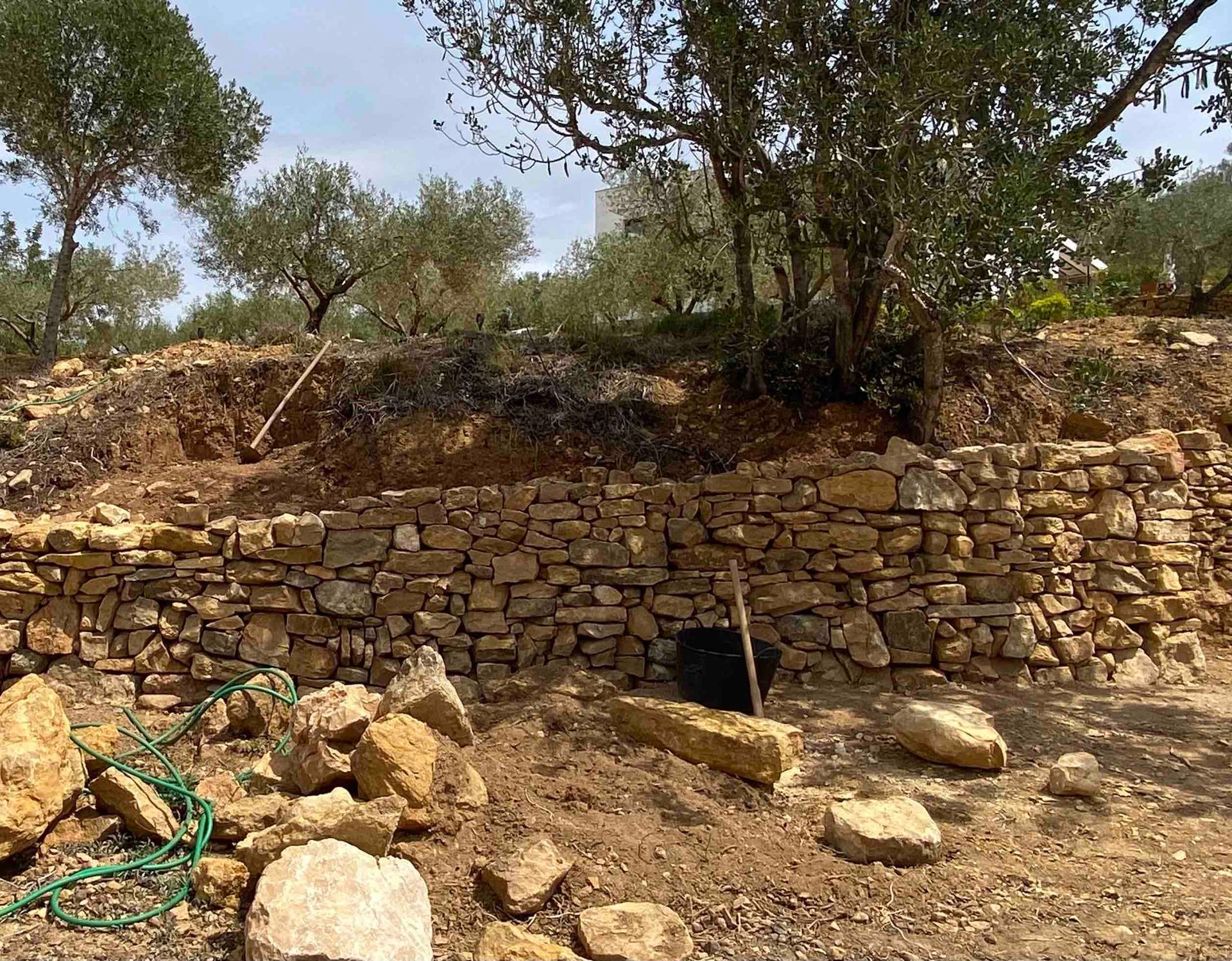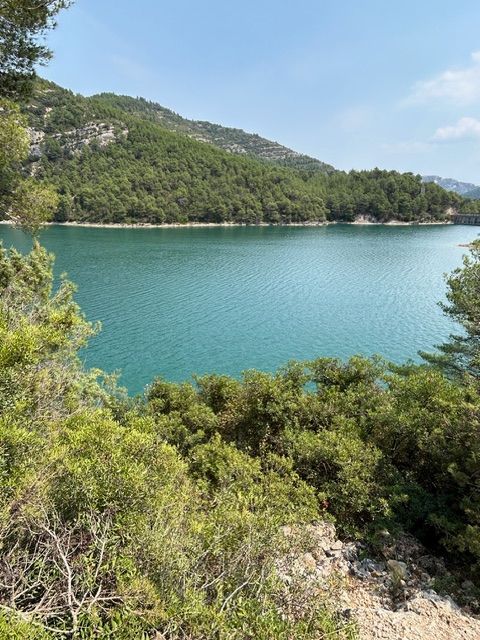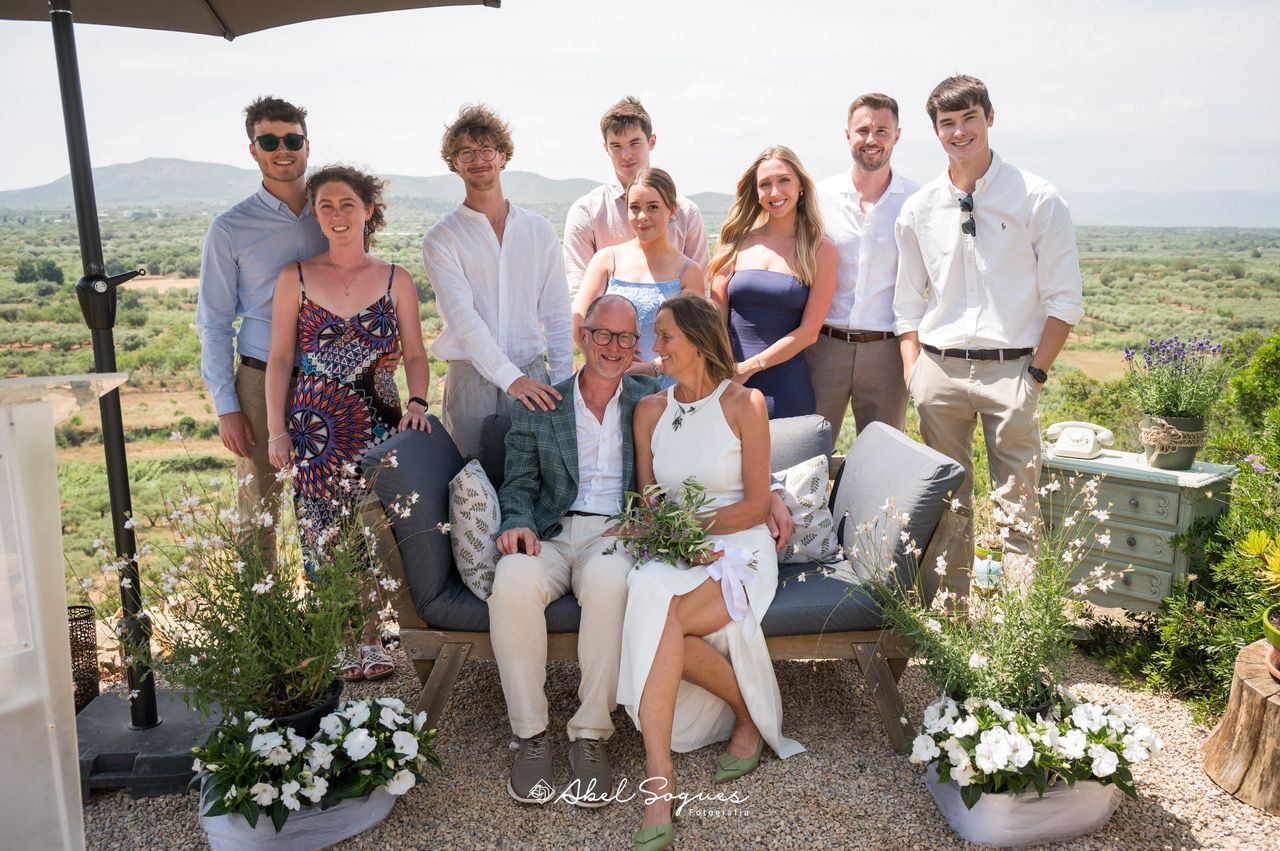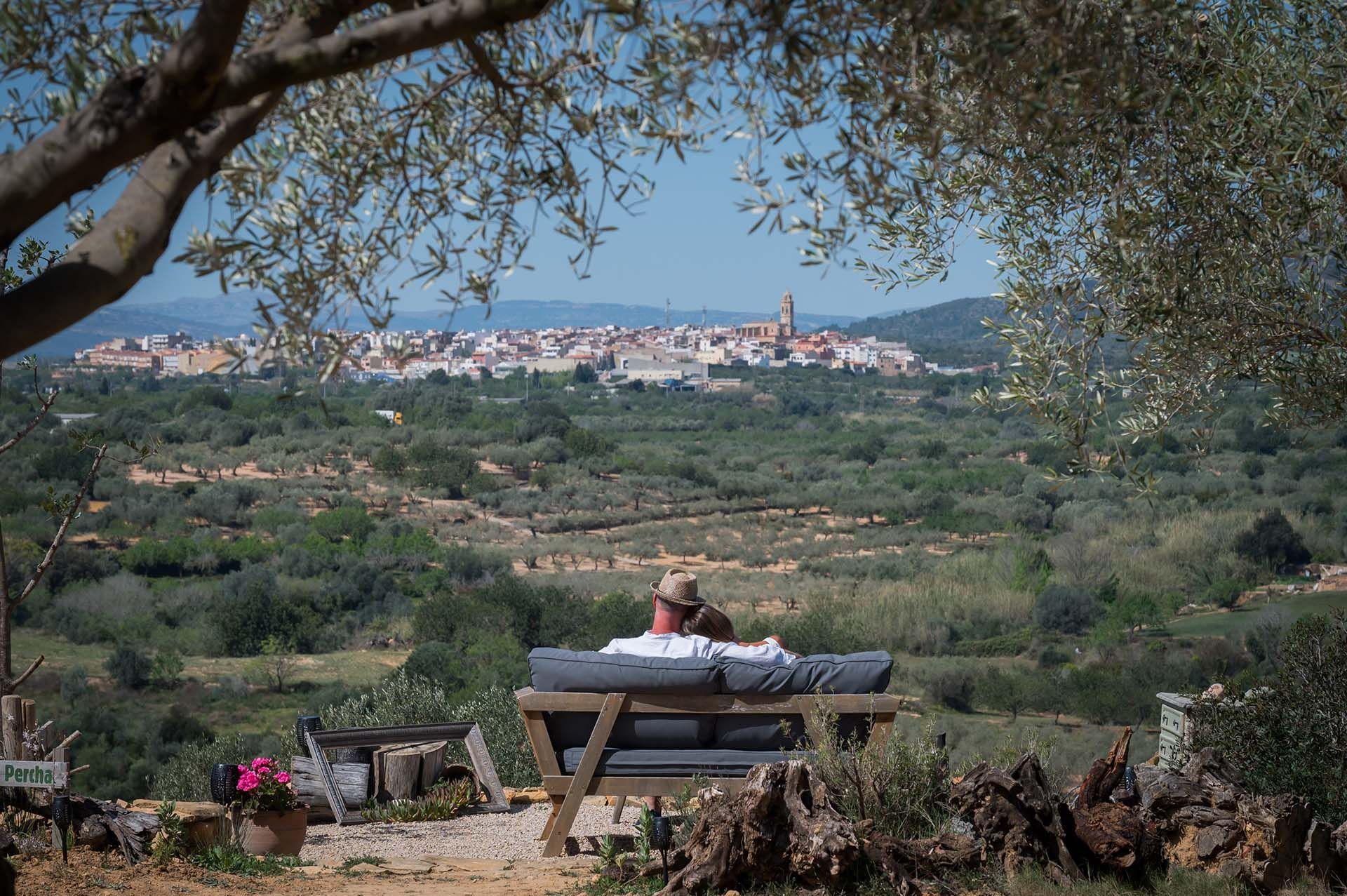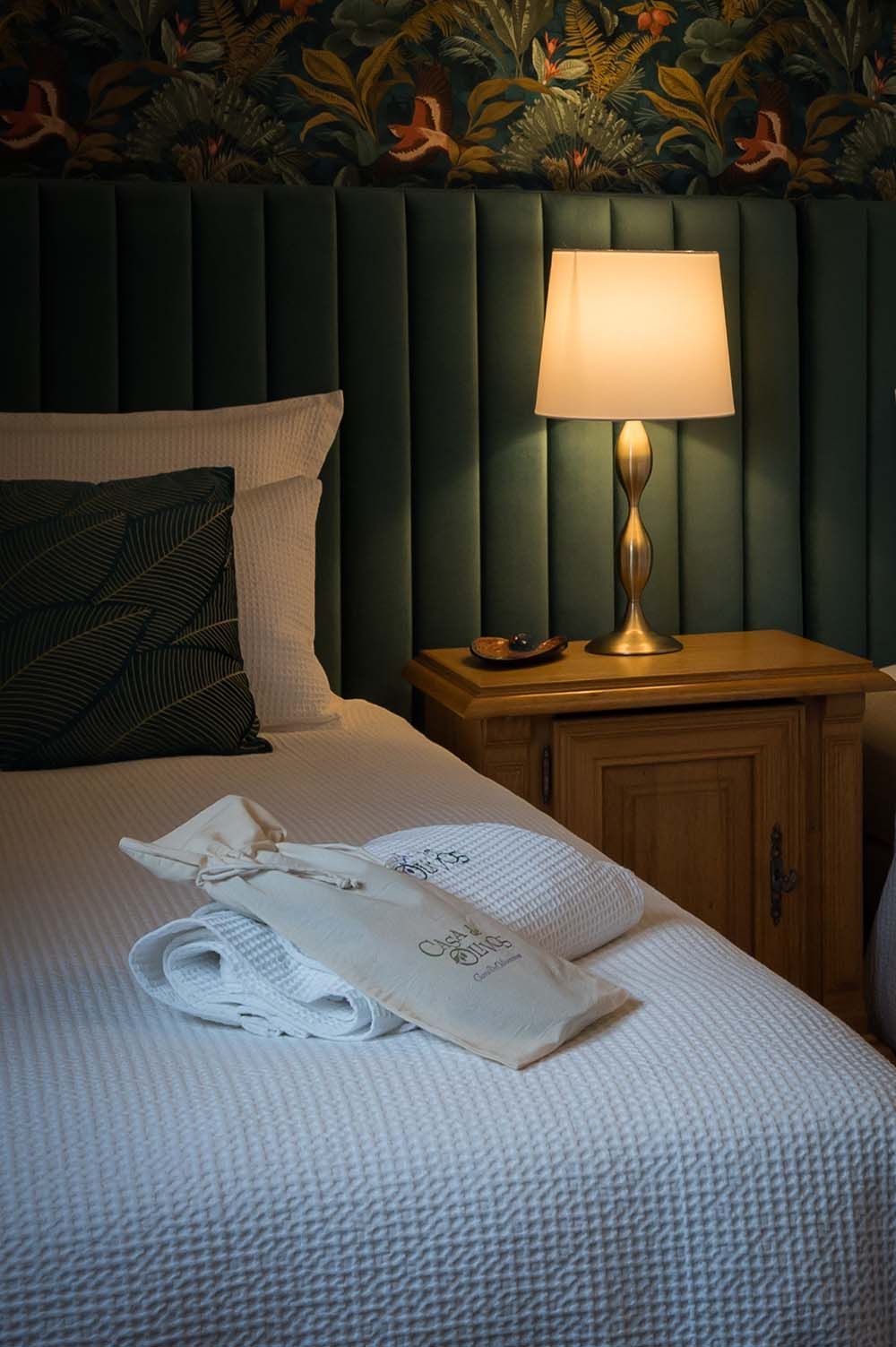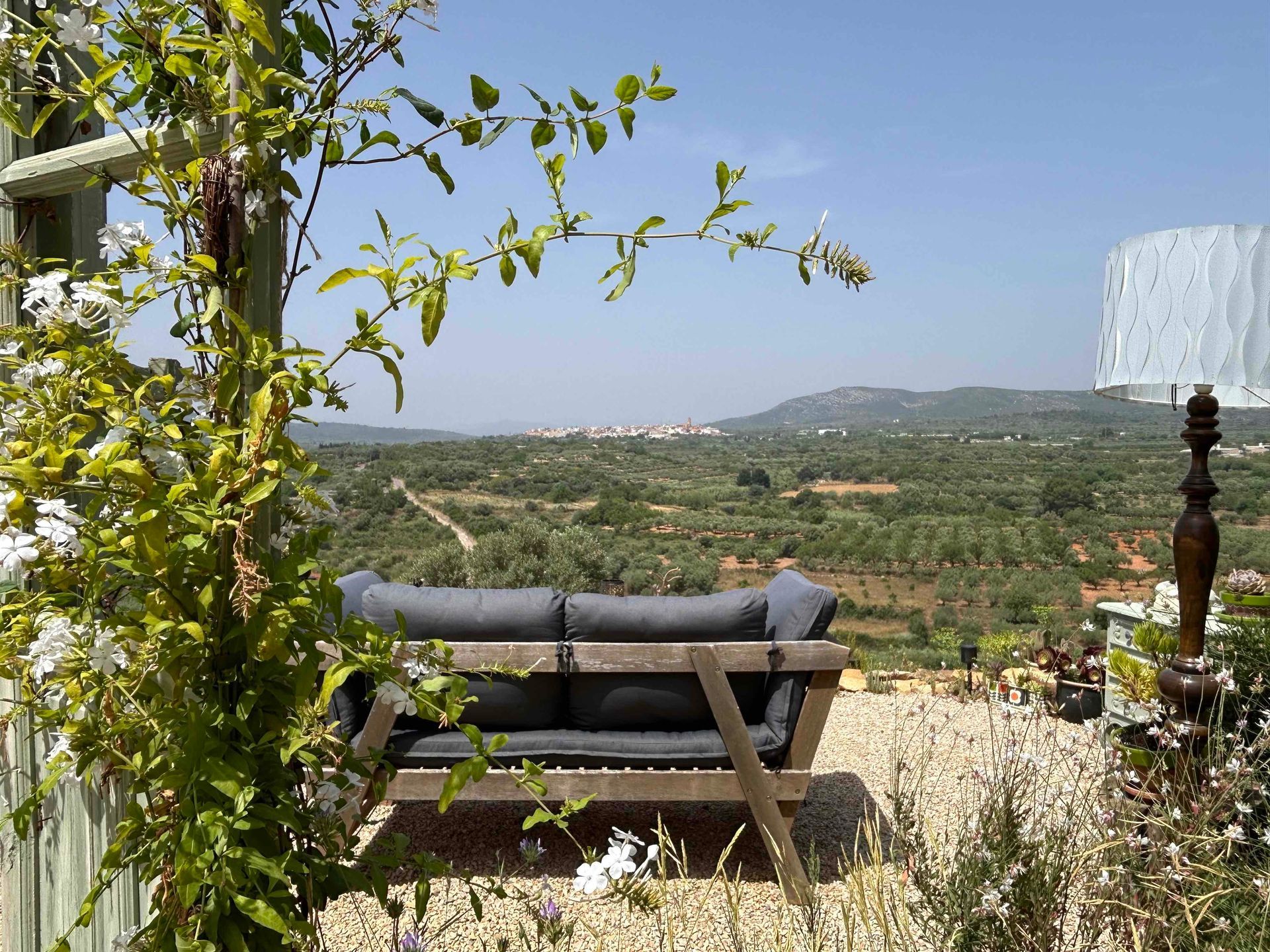Dry stone walling, Spanish style
Piedra Seca – A heritage craft
Casa de Olivos is home to hundreds of metres of dry stone retaining walls. Our three hectares of hillside is bench-terraced, half of which is home to our organic olive trees. The remaining land is covered in wild scrub, some of which we are actively managing to encourage more biodiversity to the site.
Whether making stone fences to enclose land, mark boundaries, or make retaining walls to terrace steep slopes, the local stone found on site has been a free and abundant construction material for millennia around the world.
The landscape of The Maestrat is dominated by bench terraces that appear on almost every slope in sight, and they are a protected characteristic of the natural heritage.
Although a man-made structure, these walls are now a vital part of the ecosystem, providing a stable haven where plants and wildlife can thrive. Without them, or where they have failed, torrents of water quickly wash away precious topsoil during heavy rain. Vulnerable to yet more erosion these areas quickly become unstable, denuding them of vegetation and viable habitat.
Until the mid-20th century, many of these terraces would have been home to grape vines for winemaking. Phylloxera ravaged the vineyards during the late 19th and early 20th centuries, killing off vast swathes of vines. Later still, Spanish farmers were also incentivised to uproot vines in the 1970’s, and now many of these terraces are in olive production, or have been abandoned and left to grow wild.
Plenty of our retaining walls need repair, and even more are waiting to be built. So a major part of our environmental improvements have been dependent on reinstating these lovely old stone walls, and building new ones.
Setting up home in the Castellon countryside and opening our sustainable tourist apartments has taught us both many new skills. I had a little experience of building with dry stones from my time as a landscaper. After lot of background reading, and careful observation of local craftsman, I was ready to give it another go.
A learning journey
Looking back, I can see that my first efforts were underwhelming to say the least. But every stone placed teaches you something. Stay self-critical, apply what you learn, and strive to improve.
Our constructions now are not just looking better, but they’re getting more ambitious too. Our latest project, codenamed The Quick Win (best said laden with irony) is the biggest to date, and will feature a staircase connecting The Perch to the petanca court. Once complete we will have stabilised an embankment and given an overgrown corner a much needed facelift.
Building for the future
If done right, there’s no reason why these walls shouldn’t last 200 years or more. Very soon after arriving here we realised that we were custodians of a rich natural heritage, not owners of it. That’s why we included the conservation and expansion of the wild native landscape into our environmental plans. It’s great knowing that we are building something now that will be serving its purpose for generations to come, preserving habitat for so many native flower and animal species.
The work will continue long after project Quick Win is finished. More walls to repair, and plenty to build from scratch. Each one is transformative to the landscape, improving habitat and making better connections between terraces. The work is highly therapeutic and a personal learning journey. The craft requires real focus and attention, but the satisfaction of making the rock-jigsaw fit together is hard to describe. Finding the exact stone in a pile of hundreds that fits the gap perfectly is almost transcendental!
We actively encourage guests staying at Casa de Olivos, in Traiguera, to explore the olive groves, including the terraces that we are managing as wild habitat. Features like the Hammock, The Perch and the Petanca piste all bring guests into the space where nature and olive farming meet. We hope that our work helps educate others, and maybe provides some inspiration for conservation projects near their own homes.
Why not come and see for yourself. We are happy to show guests around on request. And if you are a dry stone waller yourself, constructive criticism is always welcome!
Claire and Ed





